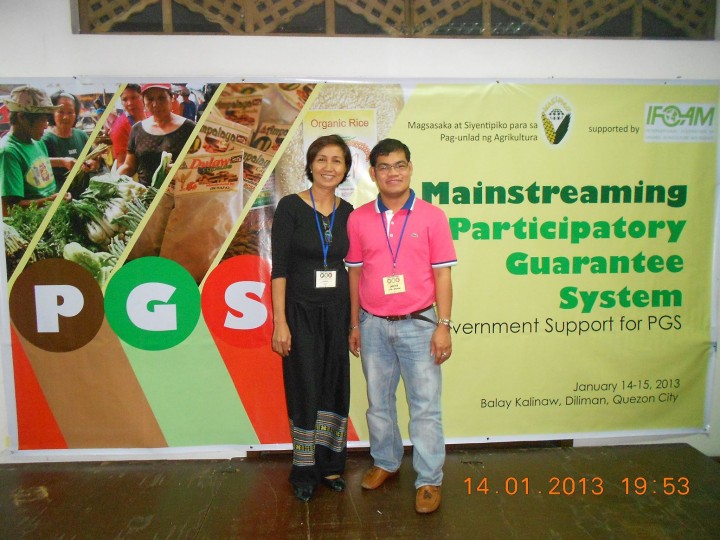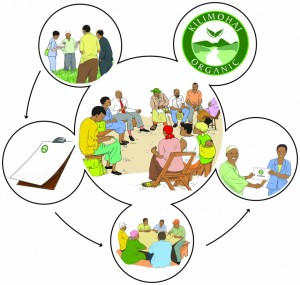While third-party certification systems for organic products are doing an excellent job at what they were designed for and have vastly increased the global market and awareness of organic products, Participatory Guarantee Systems (PGS) offer a complementary, low-cost, locally-based system of quality assurance, with a heavy emphasis on social control and knowledge building. Thus, PGS, as a complementary method to third-party certification, is seen by some as essential to the continued growth of the organic movement, especially if we want to include poorer smallholder farmers who have the most to benefit from organic production.
“It is ironic that in many countries we see the number of acres under third-party organic certification increasing quickly, while the number of certified organic farmers is hardly growing,” says the spokesperson for the International Federation of Organic Agriculture Movements (IFOAM). *
“Based on these numbers it would appear smallholder farmers are less interested in joining the organic movement than large agribusiness farms. Of course this is not true; it is only the process of third-party certification that smallholders are less interested in. Barriers to entry for third-party certification, including direct costs and paperwork, mean that many of the smallest and poorest farmers (those that have the most to gain by joining a system of committed organic production) cannot participate, and this hurts the growth of the organic movement as a whole.”
This is where the PGS systems come into play.
“By bringing more farmers into a system of committed organic production, and linking that to direct and local sales, PGS offer much wider access of organic products to local consumers. Because PGS initiatives directly link up consumers and farmers they may also help to provide organic food at a lower cost to poor consumers.
“It’s first essential to acknowledge that no system of certification or quality assurance is perfect. Farming is often a solitary profession; so unscrupulous people that want to cheat can generally find ways to do so. At the same time, PGS proponents believe that we must start with a foundation of trust and that organic farmers who make a public declaration to uphold the Principles of Organic Agriculture can, in fact, be trusted, and that intentional fraud accounts for only a minority of non-compliances.
“The PGS approach to quality assurance begins by looking at the primary factors behind most non-compliant actions. These include a lack of understanding about organic rules and a lack of knowledge of organic techniques to solve specific production problems organically. PGS address these two factors in a variety of ways, but in general they are based on guided peer review and support, as well as mutual knowledge building.
“In addition PGS initiatives make use of social control, which is effective only when local stakeholders have ownership and a direct hand in the certification mechanisms (as opposed to being answerable to a distant authority.) This requires locally based and non-hierarchical certification structures and mechanisms appropriate to the social context they are operating in. Finally, all PGS include guided on-site inspections.
Diagram of common PGS features: example from the East African Organic Standard and the mark, Kilimohai
“Consumers are integral to the operation of a successful PGS. The exact role varies but includes helping with the initial development of the initiative, including standards and systems, to ongoing involvement in local, regional and national meetings, to participating in revisions and on site farm appraisals. In some countries consumers play an active role in distribution by running PGS cooperatives.
“In PGS, farmers play a vital role not only as producesr, but as part of the monitoring and evaluation committee as well. They are experts in organic production and their experience and commitment are the foothold of a developing PGS.”
* See: http://www.ifoam.bio/en/pgs-general-questions.











